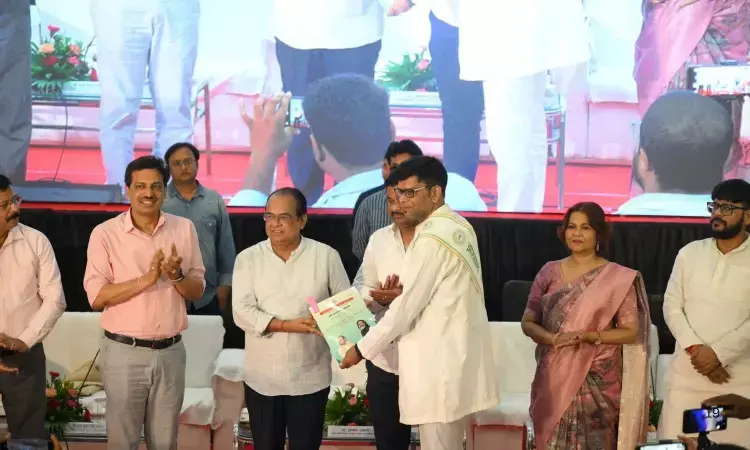
Doctors selected under NHM; lowest honorarium bidders awarded preferred postings
Ranchi:
In a landmark move aimed at addressing the specialist doctor shortage in rural areas, the Jharkhand government on Tuesday handed over appointment letters to 126 specialist doctors recruited under the National Health Mission (NHM) through a first-of-its-kind bidding-based recruitment system.
At a function held at the IPH Auditorium in Namkum, State Health Minister Dr Irfan Ansari distributed appointment and posting letters to the selected doctors. The innovative recruitment model allowed doctors to bid for their preferred postings by quoting the lowest honorarium.
Under this system, applicants were presented with a list of available healthcare centres across the state and invited to choose their preferred locations. Priority was given to those who quoted the lowest salary demand for a particular centre—aiming to optimise costs while enhancing rural healthcare coverage.
“Our vision is to transform every district in Jharkhand into a Medicos City. These appointments aren’t just jobs—they’re responsibilities,” Dr Ansari said. “Each doctor is now the ‘Health Minister’ of their hospital.”
Mission to Strengthen Rural Healthcare
Additional Chief Secretary Ajay Kumar Singh, also present at the event, stated that this initiative aligns with the government’s broader plan to improve access to specialist care across the state.
“This isn’t just recruitment—it’s a mission. Sadar Hospital in Ranchi is already becoming a model for the nation, and the Uttar Pradesh government has shown interest in adopting our innovation,” he added.
The newly appointed specialists include:
- 22 Paediatricians
- 20 Surgeons
- 19 Gynaecologists
- 17 Anaesthetists
- 11 General Physicians
- 10 Orthopaedic Surgeons
- 9 Ophthalmologists
- 5 ENT Specialists
- 5 Psychiatrists
- 4 Radiologists
- 4 Dermatologists
Although 219 posts were advertised, only 126 applicants completed the process. The remaining 93 posts remain vacant.
Terms of Appointment
As per the contract terms, selected doctors must reside in government-provided accommodation and are prohibited from engaging in private practice. The state hopes that this policy will incentivise doctors to serve in underserved and remote areas.
With only 7,500 doctors available against a requirement of 37,000, and a stark shortage of specialists—just 300 serving against 1,200 sanctioned posts—this recruitment model is expected to play a pivotal role in bridging the healthcare gap in Jharkhand.
The government also plans to replicate and expand this model in future recruitment drives to ensure equitable distribution of healthcare services across the state.

